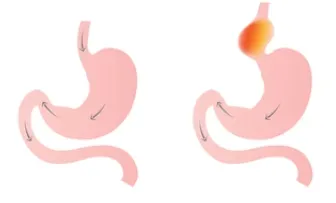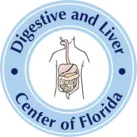Hiatal hernia is a condition that causes the upper part of the stomach to bulge up through an opening in your diaphragm which is a thin muscle that separates the chest and abdomen. This condition can affect any person, but people that are obese, smoke or are older than 50 years have higher risk of getting it.
Symptoms
Hiatal hernia doesn’t always have symptoms. When you do get symptoms they are similar to the ones of GERD condition. Some of them might be:
- Shortness of breath
- Bloating
- Excessive burping
- Bad breath
- Heartburn
- Pain in the stomach
- Indigestion
- Nausea and/or vomiting
- Difficulty swallowing
What factors can put you at risk?
There are a couple of factors that can contribute to getting hiatal hernia. Mainly happens when there is too much pressure in the abdomen, which can happen by:
- Smoking
- Stress
- Too much vomiting
- During the pregnancy
- Obesity due to too much pressure in the abdomen because of the extra weight
- Heredity
- Hard coughing and/or sneezing
How do doctors diagnose hiatal hernia?
There are a couple of test that doctors can use to diagnose hiatal hernia, these are the following:
- Barium swallow: it works by drinking a liquid and doing x-rays to help see any problems in the esophagus and the stomach.
- Endoscopy: this is a procedure in which there is a tube introduced through your mouth down your throat to observe the upper digestive system.
- Esophageal manometry: this test works with a tube passing through your nose down to the esophagus and in the stomach. Usually used when a person has trouble swallowing.
Treatments
Hiatal hernia is a condition that you can live with if you don’t have any symptoms. Usually a change in your lifestyle is the only treatment that you might need. For example:
- losing weight
- avoiding foods with too much acid
- reducing consumption of fried and fatty foods
- decreasing the portions of your meals
- Quitting smoking
- Avoiding snacks right before bedtime
- Not wearing belts or tight clothes that put pressure on your abdomen
- Lifting your head 6 inches when you are laying down in bed
On the other hand, if you do experience symptoms, the doctor might prescribe you over the counter medication and if this doesn't help, prescription medications. In other cases, the doctor can suggest surgery to repair the condition. For each person, the treatment will be different depending on how severe the condition gets.
How can the Digestive and Liver Center help?
Here at DLCFL we count with the best GI doctors in Orlando, ready to help with any question or concern you might have. If you are experiencing any symptoms don’t wait any longer, go ahead and schedule your appointment now or talk with your primary care physician for a referral. Our number is 407-384-7388.


